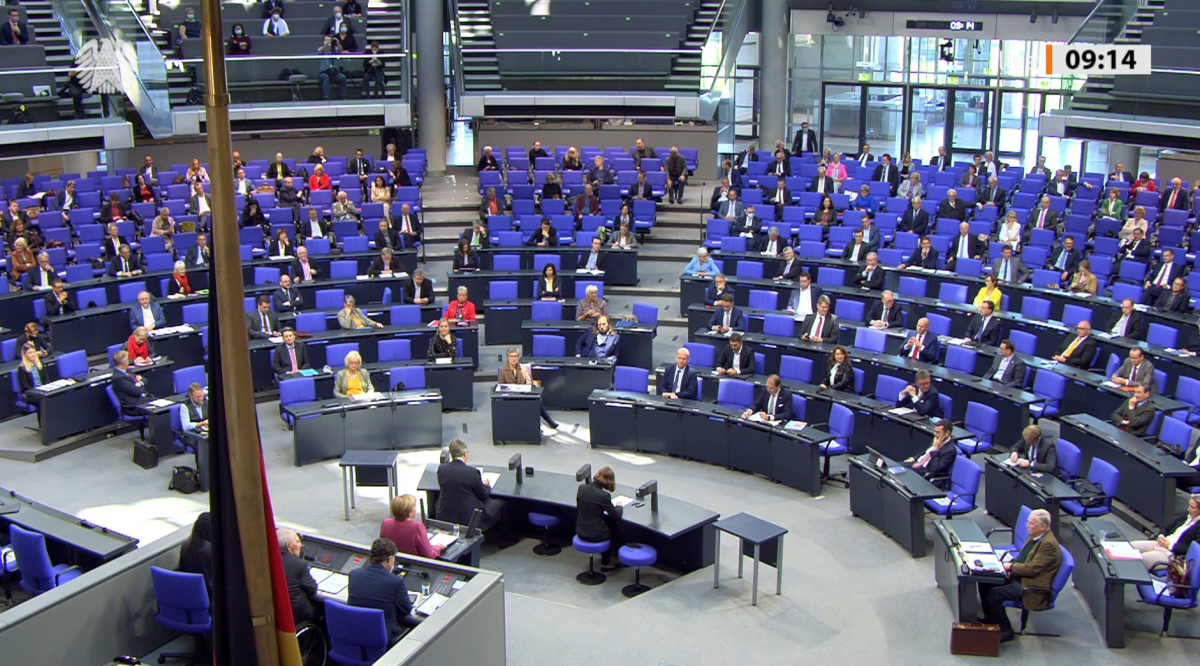“Those who only want to achieve climate action through a price on carbon will fail” – SPD’s Miersch
Clean Energy Wire: What will become important in German climate and energy policy in 2021, also taking into account the coronavirus pandemic and its effects?
Matthias Miersch: First and foremost, we want to regulate the things we have set out to do in the resolution on the reform of the Renewable Energy Act in December 2020. This includes, above all, an increase in the renewable capacity expansion paths, including an acceleration of the approval procedures, as well as a more binding cooperation between the federal and state governments. In addition, in the medium term, there must be a new financing of renewables, including the abolition of the renewables levy on the power price used to support installations. Without the renewables levy, many wind power and solar projects that are uneconomical today, will pay off. This will create a new dynamic. We must all pull together in the expansion of renewables.
In addition, the Climate Action Law is facing its first test this year. In March, the Federal Environment Agency (UBA) will publish the emissions data for 2020. If the emissions of individual sectors - e.g. transport or buildings - exceed the requirements of the law, the responsible ministers must propose immediate programmes for the respective sectors within three months. We will take a close look at these and make sure that improvements are made where necessary. In addition, we must also tackle the implementation of the EU climate targets at national level.
What influence will the federal election have on the country's climate policy efforts (and vice versa)? What role will the issue play in the SPD's election campaign?
We must not align our climate policy with election campaign dates. On the contrary, we need a reliable path, for example, for the coal phase-out and the expansion of renewable energies. This is the only way to ensure planning and investment security. Only then can we reliably achieve our goals.
Climate action and convincing ideas for the socio-ecological transformation will play an important role in our election campaign. In this transformation project, the common welfare has a central role to play. For a broad approval of climate action, we need the broadest possible consensus. Those who only want to achieve climate action through a price on carbon will fail. It is correct and necessary to put a price on resource consumption. However, a steering effect may only be achieved if sufficient alternatives are available. Otherwise, CO2 pricing will become a purely neo-liberal exercise. We will therefore prioritise investment programmes, regulatory law and the promotion of innovations.
"We must not align our climate policy with election campaign dates."
If both the CDU/CSU and the Greens are advocating a strong green agenda in the run-up to the elections, what role can the SPD play in this area to set itself apart from the other parties?
First of all, we are the only party that has achieved real milestones in recent years; we have shaped the nuclear phase-out, the coal phase-out and the climate action law, and we have fought for the expansion of renewable energies and achieved a lot.
For us, solidarity is important, climate action must not be an elite project; we want to inspire everyone and make participation possible. The energy transition must become a project where everyone can join in.
NGOs and researchers are calling for profound changes in the system of taxes and levies on energy and in the electricity market. What is your position on this and what is your party's position? Will the SPD advocate such fundamental changes?
The alternative financing of the renewabless levy on the power price will bring enormous bureaucratic relief for companies and financial relief for citizens. According to the parliament resolution attached to the Renewable Energy Act 2021, we also want to tackle this issue in the first quarter. We could also very well imagine a further ecological tax reform. We are currently working on a concept.
The new CO2 price on heating and transport fuels came into force in January 2021 - do you think that these additional costs will trigger citizen protests and that voters might turn against the SPD (as one of the government parties jointly responsible) because of this?
From the beginning, we have advocated that citizens must be relieved of the burden of the new CO2 price so that climate protection does not cause social upheavals. Currently, this is illustrated by the debate on the allocation of the CO2 price to tenants.
Once again, the CDU/CSU wants to protect the climate on the backs of tenants. The CDU/CSU ministries are blocking a regulation on tenants sharing half of the costs of the CO2 price on heating fuels with their landlords, although this is already a compromise and a concession by the SPD ministers. It is not the tenants' fault if they live in flats with outdated heating systems. And yet the CDU/CSU wants to make them pay alone for rising heating costs. Personally, I still think that full payment by landlords is right and socially just.
We have considerably increased and expanded the subsidy programmes for building owners. However, if the costs of CO2 pricing can be passed on in full to tenants, the intended incentive towards climate-friendly and modern heating systems is completely lost. It cannot work like that.



